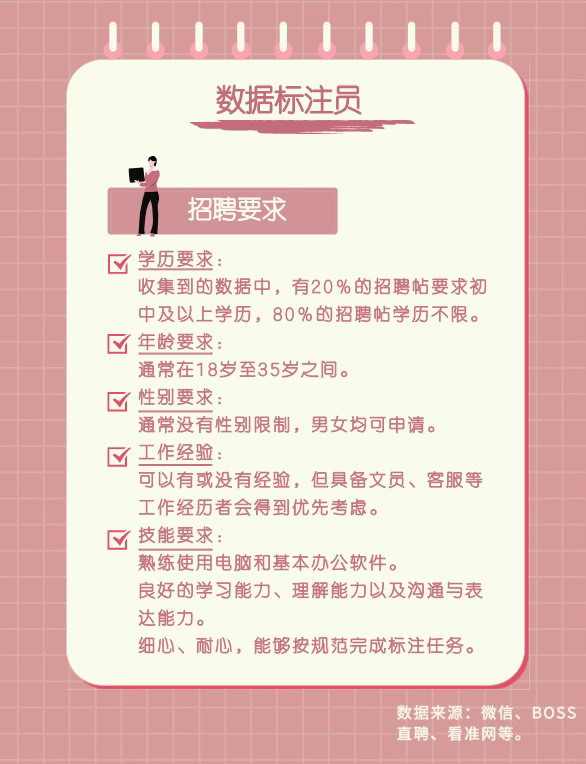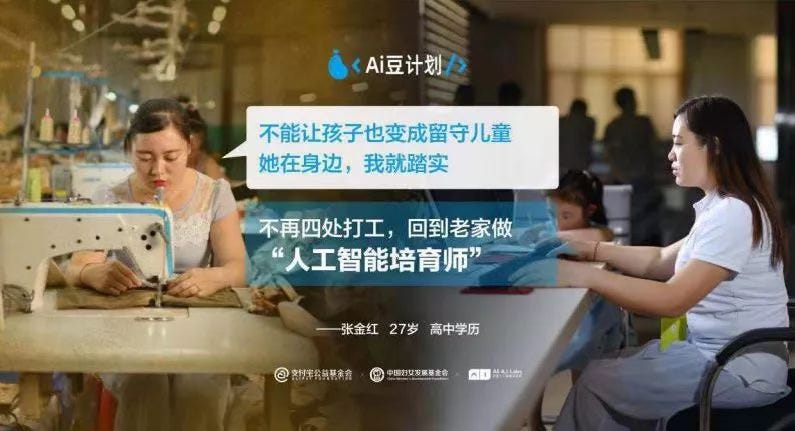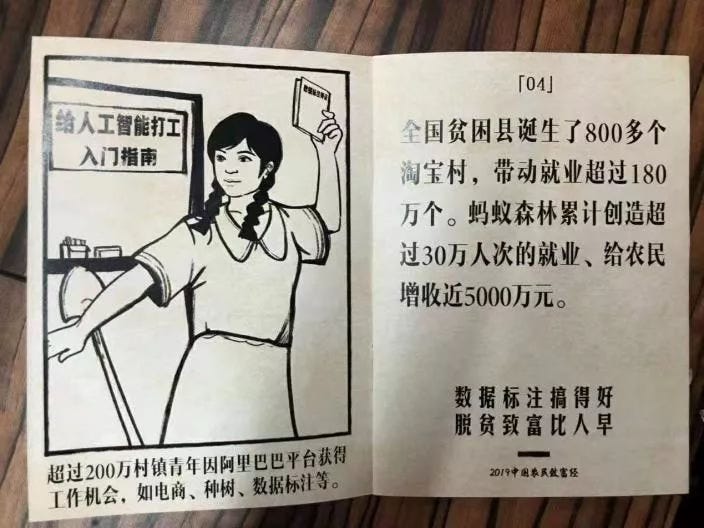C FUTURES | Your Google Maps' data model might be trained by women from remote villages
A New Chapter in AI and Rural Female Empowerment
What is Happening
Believe it or not, the navigation app you rely on, like Google Maps (or Baidu Maps in China), powered by AI (Artificial Intelligence) models could be trained by women from remote villages. In Yonghe County of Shanxi Province, China, an AI data annotator company offers 158 jobs to local women whom are previously housewives, demanding no more than basic computer skills and internet fluency. Their daily tasks vary from identifying road signs in images to verifying the operational status of street shops. As of 2023, there are over a thousand such companies, spread across both affluent coastal regions and less-developed inland areas (e.g. Xinjiang, Guizhou, Shanxi, Shaanxi, Gansu, and Ningxia Province). Some of these are positioned as social enterprises with a focus on the improvement of local economy and social welfare. For example, they hire disadvantaged groups, such as people living in poverty, village women and disabled persons.

Why it Matters
The United Nations forecasts that by 2030, over 340 million women and girls will live in extreme poverty, comprising about 8% of the global female population. In China, the disparity is more pronounced among rural women, especially the younger generations who often forsake potential employment in larger cities to care for family members, such as the elders and kids in the remote areas. A good news is here along with the booming A.I. industry. The rise of accessible job opportunities like data annotation allows these women to work close to home, manage family duties, and achieve financial independence, with a monthly earning between 3,000 to 6,000 RMB (415 to 830 USD), paving the way for personal and professional growth.


Beijing’s strategic initiatives, such as Data East, Compute West, aim to optimize resources by situating data centers in sparsely populated, resource-rich western regions, thereby fostering job creation in labor-intensive sectors like data labeling. Concurrently, the initiative of Rural Revitalization promotes digital projects that aid economic development in isolated areas (e.g. tax deductions, discounted office rental, entrepreneurship subsidies), supporting local women to secure employment near their homes, thus addressing the critical issue of rural women's employment and empowerment.


What’s Next
As more women from remote rural areas engage in AI model training, they not only help narrow the gender pay gap and elevate their living standards but also enhance their digital skills, potentially outpacing urban counterparts in certain areas, such as agriculture product livestreaming e-commerce. The shift towards complex tasks like data annotating for Large Language Models provides these women with opportunities for advanced training in data processing and management roles. This empowerment leads to the rise of the rural She Economy, exemplified by the formation of female-led cooperatives and collective enterprises in the AI industry.
Furthermore, as the rural workforce grows within the AI sector, coupled with China's vast internet user base, there will be a significant increase in the volume of high-quality data, accelerating AI advancements in language processing, image recognition, and autonomous driving. The emergence of women-led data processing firms, leveraging rural workforce size and cost benefits, positions them as formidable players on the international stage, establishing "China Data Labeling Village" as an alternative to the suppliers in India, Southeast Asia, and Africa.
Read more:
The Paper: When AI Meets Poverty Alleviation: "Artificial Intelligence Cultivators" in the Mountains
The Paper: Digital Mulan | The road to digital employment for rural women
AIGCdaily: 2023 China AIGC Data Labeling Industry Panorama Report
About C Futures:
We decode China's complex market dynamics with concise, insightful reads based on first-hand experiences—your guide to understanding and navigating this fascinating economy, culture, and people.
Contact Us: CFuturesNow@gmail.com

